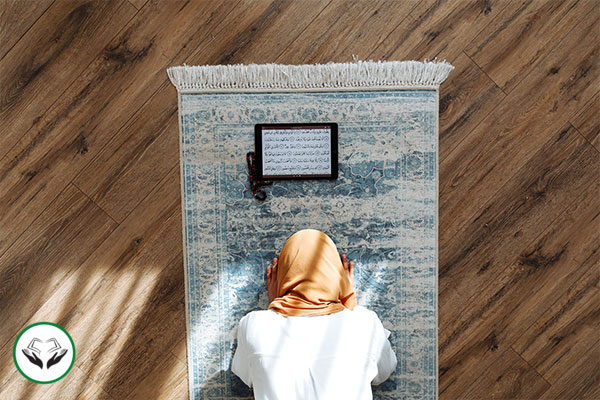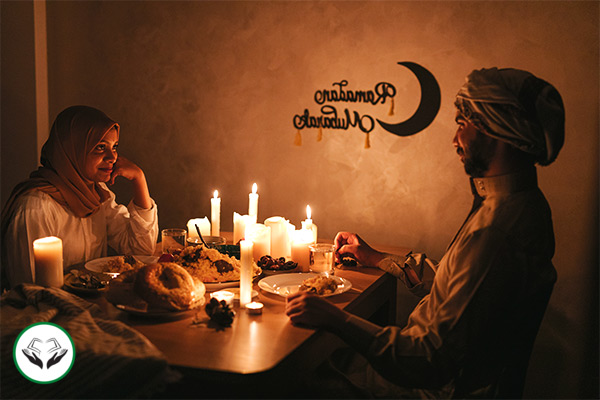Ramadan 2023
Ramadan is the holiest month in the Islamic calendar, observed by more than 1 billion Muslims around the world. It is a time of spiritual reflection, self-improvement, and increased devotion to worship, prayer, and charitable acts. Muslims fast from dawn until dusk throughout the month, abstaining from food, drink, and any other physical needs. The month of Ramadan is not only about fasting, but it is also a time of increased spirituality, family gatherings, and community building. It is a time where Muslims redirect their focus towards their faith, as they seek to strengthen their connection with Allah. Overall, Ramadan is a month that brings enlightenment, closeness, and peace to the hearts of Muslims around the world. Follow the article that is written by the Best Istikhara team.

What is Ramadan?
Ramadan is the ninth month in the Islamic calendar and is considered to be the holiest month by Muslims worldwide. It is a time of religious dedication and devotion that typically lasts for 29 to 30 days. During this month, Muslims fast from dawn until sunset every day, abstaining from food, drink, smoking, and engaging in sexual activity. The fast is considered one of the five pillars of Islam and is a way for Muslims to purify their souls and develop self-discipline, patience, and empathy for those who are less fortunate. Muslims also increase their practice of prayer, charity, and other good deeds during Ramadan. The month of Ramadan ends with the festival of Eid al-Fitr, a celebration that involves family gatherings, feasting, and gift-giving.
What is the Purpose of Ramadan?
The purpose of Ramadan is to achieve greater self-discipline, spiritual purification, and empathy for those who are less fortunate. Ramadan is meant to be a time of intense devotion and reflection, during which Muslims try to heighten their religious practice and strengthen their relationship with God. By fasting, Muslims learn to exercise self-control over their physical desires, which in turn helps develop mental and emotional discipline. Ramadan also provides an opportunity to focus on one’s faith and personal development, through increased prayer, Quranic study, and charitable activities.

The emphasis on empathy and charity during Ramadan encourages Muslims to consider the plight of others, and inspires them to be more generous and charitable to those in need. Through the shared experience of fasting, Ramadan also fosters a sense of community and solidarity among Muslims, as they gather for communal iftars (breaking fasts) and special prayers, strengthening communal bonds and reinforcing a common purpose. Overall, the purpose of Ramadan is to achieve greater spiritual and moral awareness, to promote self-improvement, and to enhance one’s relationship with God and fellow human beings.
Why Ramadan is the Most Sacred Month in Islamic culture?
Ramadan is considered the most sacred month in the Islamic culture for several reasons:
It is the month in which the Quran, the holy book of Islam, was revealed to Prophet Muhammad. Muslims believe that during the month of Ramadan, the doors of heaven are open, and divine blessings and forgiveness of sins are bestowed upon those who observe the month with dedication and sincerity.
Fasting during Ramadan is considered one of the Five Pillars of Islam, which are the foundation of the Muslim faith. Fasting is a way for Muslims to exercise their faith, discipline their bodies and minds, and deepen their spiritual connection with God.
Ramadan is a time of increased charity and good deeds. Muslims are encouraged to give generously to the poor and needy during this month, and the reward for these acts of kindness is believed to be increased significantly during Ramadan.
The sense of community and togetherness during Ramadan is another important aspect of this sacred month. Muslims gather for iftar (breaking of the fast) and nightly prayers, strengthening communal bonds and reinforcing a common purpose.
In summary, these factors contribute to the significance of Ramadan in Islamic culture, making it the holiest and most sacred month in the Islamic calendar.
Benefits of Islamic Fasting
Fasting is an important practice in Islam, and it is undergone during the month of Ramadan. Here are some of the benefits of Islamic fasting:
Spiritual purification: Fasting enables Muslims to purify their souls, as it helps them to abstain from sinful behavior, negative thinking, and social evils. This leads to greater spirituality and a closer relationship with Allah.
Self-discipline: Fasting provides an opportunity for Muslims to practice self-discipline and moderation in their daily lives, enhancing their ability to control their desires and urges.
Improved physical health: Fasting has several physical health benefits, such as weight loss, lower blood sugar levels, and improved digestion. It also helps to regulate and ‘reset’ the body’s metabolism.
Enhanced mental health: Fasting has been shown to have a positive effect on mental health, as it helps to reduce stress and promote relaxation. It also encourages positive thinking and a greater sense of well-being.
Increased empathy and compassion: By experiencing hunger and thirst, Muslims gain a better understanding of the struggles faced by those who are less fortunate. This enhances empathy and compassion, leading to a greater willingness to engage in charitable acts.
Greater social cohesion: Fasting promotes social cohesion and strengthens communal bonds. Muslims break their fast together at the end of each day, strengthening the sense of community and togetherness.
Overall, Islamic fasting has numerous physical, mental, and spiritual benefits, making it an integral part of the Islamic faith and a source of immense value to Muslims.
How Long is Ramadan Fasting?
Ramadan fasting is observed for a period of one lunar month, which lasts approximately 29 to 30 days depending on the sighting of the moon. During this time, Muslims fast from sunrise to sunset, abstaining from food, drink, and other physical needs during the daylight hours. The exact length of the fast may vary depending on the location and timing of the lunar cycle.
Who Shouldn’t Fast During Ramadan?
Not everyone is required to fast during Ramadan, and there are some conditions under which a person is exempt from the fast. Here are some examples of who should not fast during Ramadan:
Children who have not reached puberty.
Pregnant and breastfeeding women, if fasting is likely to harm the mother or the baby.
People who are ill or have a chronic health condition and fasting would make it worse.
Travelers who are on a journey, usually more than 48 miles away from home.
Women who are on their menstrual cycles or postnatal bleeding should not fast.
It’s important to note that those exempt from fasting should make up the missed days at a later time, except for those with chronic illness or medical conditions that prevent them from fasting altogether. Instead, they can pay the fitrah, which is giving money to feed the needy for each missed day of fasting.
What Are the Fasting Rules for Ramadan?
The fasting rules for Ramadan are as follows:
The intention to fast must be made before dawn each day of Ramadan. One should make the intention for fasting with a sincere heart and a pure intention to achieve greater rewards.
Abstain from eating, drinking, smoking or engaging in sexual activity during the daylight hours.
Break the fast at sunset with a meal called Iftar. Traditionally, this meal begins with dates and water, followed by a larger meal.
Eat a pre-dawn meal called Suhoor. This meal should be eaten before Fajr (the morning prayer). It is strongly recommended to eat a nutritious meal to help sustain energy throughout the day.
Refrain from sinful behavior, deceitful speech, or any activity that might render fast invalid.
Increase participation in charitable acts, daily prayers and read the Quran.
Observe Taraweeh (special night prayers) performed in mosques and at home.
These rules may vary in some cases depending on location and the specific practices of the community. It is important to remember that Ramadan is a month of spiritual growth and reflection, and that the rules and rituals of the fast are intended to help Muslims attain greater piety and closeness to Allah.
When Will Ramadan 2023 Start?
Ramadan is the ninth month of the Islamic calendar and its starting date depends on the sighting of the moon. The exact starting date of Ramadan 2023 may vary and can only be confirmed a few days before based on the lunar cycle, however, based on the astronomical calculations, Ramadan 2023 is expected to start on the evening of Wednesday, 22th March 2023 and will end on the evening of Sunday, 3rd of April 2023. Please note that these dates may vary slightly depending on the sighting of the moon, the local sighting in your country, and various geographical locations.
Why There isn’t Any Fixed Time for Ramadan?
There isn’t any fixed time for Ramadan because the Islamic calendar is based on the lunar cycle, which is approximately 29.5 days long. This is different from the Gregorian (solar) calendar, which is 365.25 days long. The Islamic calendar is therefore shorter than the Gregorian calendar by about 11 days per year.
This means that the dates for Islamic events, including Ramadan, shift each year by about 11 days compared to the Gregorian calendar. For example, Ramadan in 2022 started roughly ten days earlier than it did in 2021, and it will start roughly ten days earlier again in 2023.
The date of Ramadan is determined by the sighting of the new moon, which marks the beginning of the next lunar month. If the new moon is sighted, then the first day of Ramadan will be the next day. If it is not seen, then Ramadan will start after 30 days have passed since the last month.
This is why there isn’t any fixed time for Ramadan, as it relies on the sighting of the moon and is subject to small variations each year.
The Date of Qadr Days in 2023
The first day of Qadr day is on 9th of April 2023. The second day is on 11th of April 2023 and the last day is on 13th of April 2023.
When is Eid Al-Fitr 2023?
Eid al-Fitr is one of the most important Muslim holidays and is the first day of Shawwal and the end of Ramadan. With the sighting of the month of Shawwal, after a month of fasting and refusing to eat and drink and many other things, on the first day of the month of Shawwal, Muslims ask God for their reward and reward.
Eid Al-Fitr is on Sunday, 3rd of April 2023.
What is Not Allowed During Ramadan?
During Ramadan, Muslims observe strict fasting rules and follow a code of conduct that involves avoiding certain activities during the daylight hours. Here are some things that are not allowed during Ramadan:

Eating, drinking, and smoking: Fasting Muslims abstain from all food and drink, including water, during daylight hours.
Sexual relations: Married couples should refrain from any physical intimacy unless the fast has been broken.
Gossiping, lying, and other forms of sinful behavior: Muslims are encouraged to control not only their physical but also their emotional and spiritual impulses during Ramadan.
Taking medications: Fasting may affect the absorption of medication so it’s better to seek medical advice about taking medication during fasting hours.
Engaging in any kind of sinful activity: Muslims are advised to stay away from all kinds of sinful activities and perform more religious practices to help purify their soul.
It’s important to note that Ramadan is a time for self-reflection, spiritual growth, and self-discipline. Therefore, Muslims are encouraged to use this time to practice patience, compassion, kindness, and to connect with their community and understand the importance of giving back to society.
In conclusion, Ramadan is a special month for Muslims worldwide. It is a time of spiritual reflection, self-discipline, and devotion to Allah. During Ramadan, Muslims fast from sunrise to sunset, abstaining from food, drink, and other physical needs during the daylight hours. It is celebrated as a month of charity, where Muslims are encouraged to participate in more religious practices, reflect on their relationship with Allah, and give back to the society. The last ten days of Ramadan are also considered particularly blessed, as it is believed that the night of Laylatul Qadr falls within this time, a night that offers infinite spiritual rewards. Ramadan brings a sense of unity and solidarity among Islamic communities worldwide, as families come together to break their fast and participate in religious activities. Overall, Ramadan offers a time for Muslims to renew their faith, strengthen their relationship with Allah, and engage in charitable acts, generosity, and compassion.
Latest Articles About Ramadan

How to Make Children and Teenagers Interested in Ramadan?
Ramadan, the ninth month of the Islamic lunar calendar, holds a special place in the hearts and minds of Muslims worldwide. It is a time

How to take care of your skin during Ramadan?
Ramadan is a holy month of fasting and spiritual reflection observed by Muslims worldwide. During this time, it’s essential to care for your body, including

Why Do We Eat Dates During Ramadan?
As the holy month of Ramadan approaches, Muslims worldwide prepare for a month of fasting from dawn until sunset. One of the most important traditions

How to Prepare the Body for Ramadan?
Ramadan is a month of spiritual reflection, self-discipline, and increased devotion for millions of Muslims worldwide. During this holy month, Muslims observe fasts from dawn

What Should I Eat in Ramadan to be Less Hungry?
Ramadan is a holy month for Muslims worldwide, where they fast from sunrise to sunset. Fasting during Ramadan can be a challenging task, especially for

Rituals and Rewards for the Holy Month of Ramadan
Ramadan is considered one of the holiest months in the Islamic calendar, marked by a month-long fasting, prayer, and introspection period. This sacred time is

The Best Time and Amount of Exercise in Ramadan
Ramadan is the holy month of fasting for millions of Muslims worldwide. Many people change their daily routine, including their eating and exercise habits, during

30th Day of Ramadan Prayer
We have reached the last day of the holy month of Ramadan, although we did not take from the table of divine sustenance as we

29th Day of Ramadan Prayer
Ramadan is a time to respond to God’s call and circumambulate around the Prophet of love. In the last days of the holy month of

28th Day of Ramadan Prayer
The themes of supplications are full of moral and wisdom lessons, paying attention to those meanings leads to human perfection. In the month of Ramadan,

27th Day of Ramadan Prayer
One of the most important nights of Ramadan, which has many virtues, is the twenty-seventh night. There are many narrations that this night has practices

26th Day of Ramadan Prayer
Every day and every night of the holy month of Ramadan is an opportunity to get closer to God and avoid sins, and these opportunities

Who Should Not Fast this Year?
As we approach the holy month of Ramadan, many Muslims worldwide are preparing themselves for the annual fasting period. However, some individuals are exempt from

25th Day of Ramadan Prayer
Prayer is an act of worship out of helplessness and need that will cause our spiritual growth. A prayer that is for knowledge and knowledge

24th Day of Ramadan Prayer
Ramadan is the name of one of the lunar months and the month of God and the feast of the Ummah of the Holy Prophet

23th Day of Ramadan Prayer
According to the words of the infallible imams (AS), Shab al-Qadr is one of the 19th, 21st, and 23rd nights of Ramadan, and the probability

22th Day of Ramadan Prayer
The month of Ramadan is a month full of mercy and blessings, and it is an opportunity for the disobedient, confused, and remaining person to

21th Day of Ramadan Prayer
The 21st day of the holy month of Ramadan coincides with the martyrdom of the first Imam of our Shiites, Amir al-Mu’minin Ali (peace be

20th Day of Ramadan Prayer
The month of Ramadan is the month of prayer and prayer, and in the speech of the Prophet (PBUH) and the imams (PBUH), there are

19th Day of Ramadan Prayer
The 19th night of the holy month of Ramadan is one of the most glorious nights of the month of Ramadan and the beginning of

1 thought on “Ramadan”
Pingback: Why Cant You Drink Water During Ramadan ? | Best Istikhara